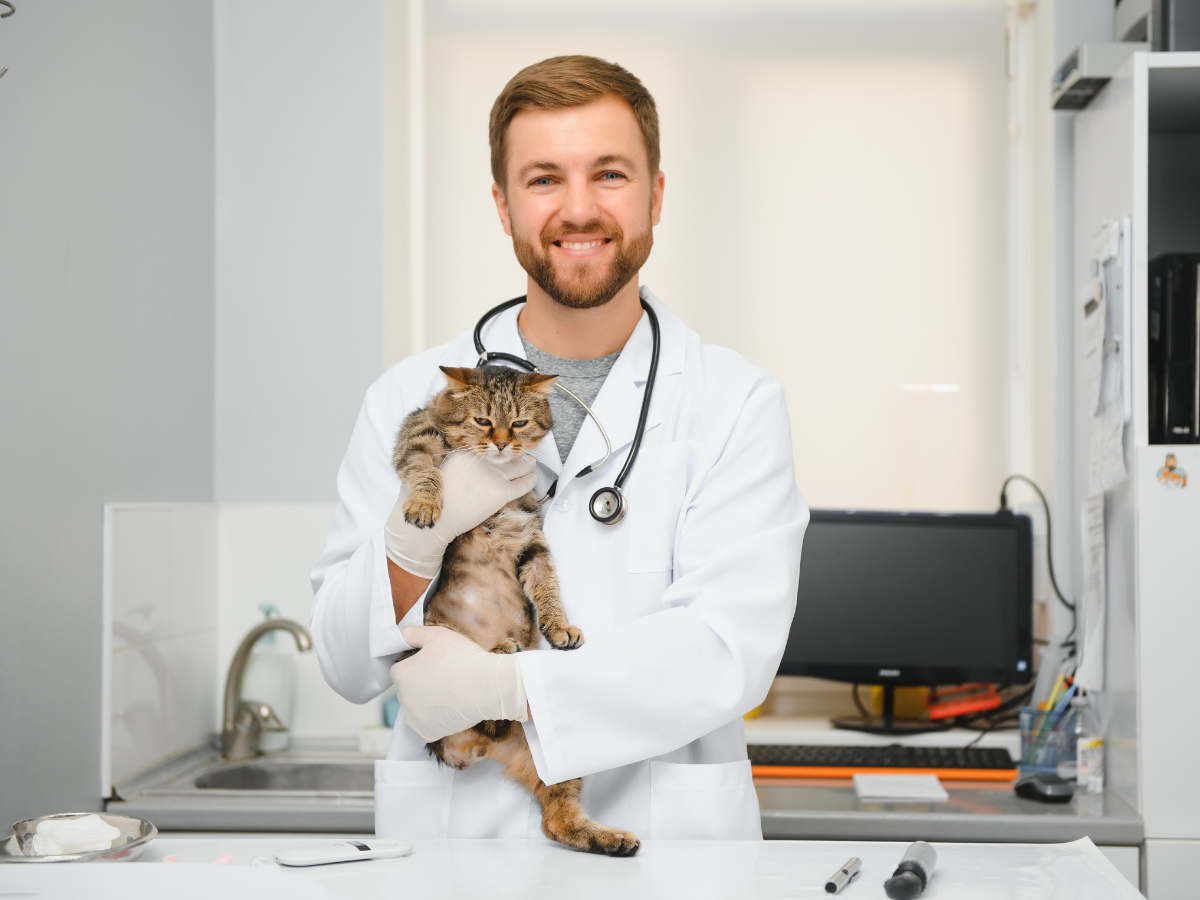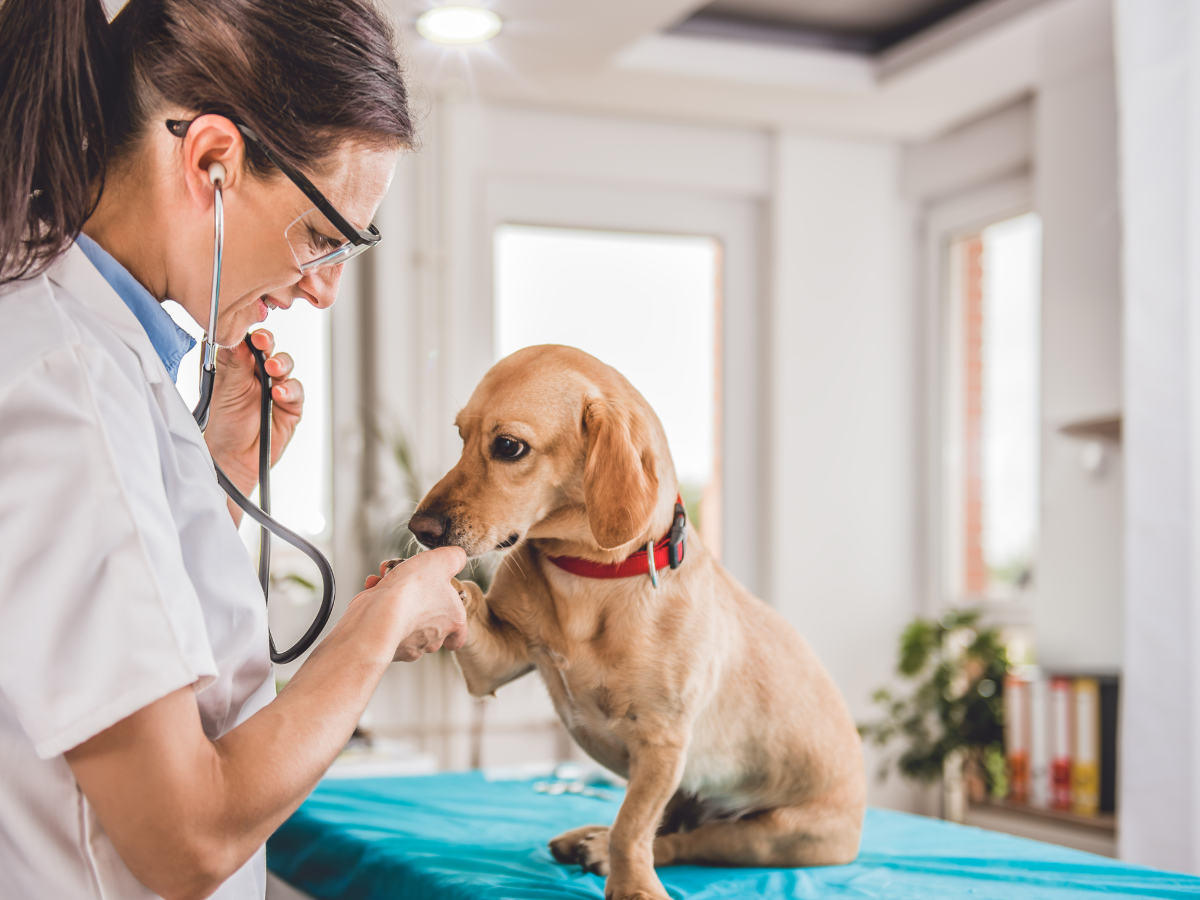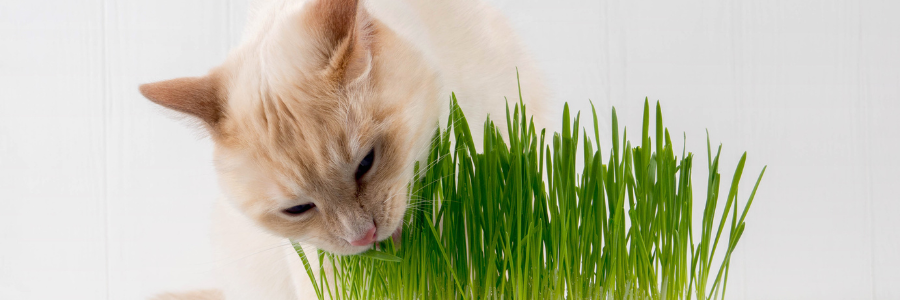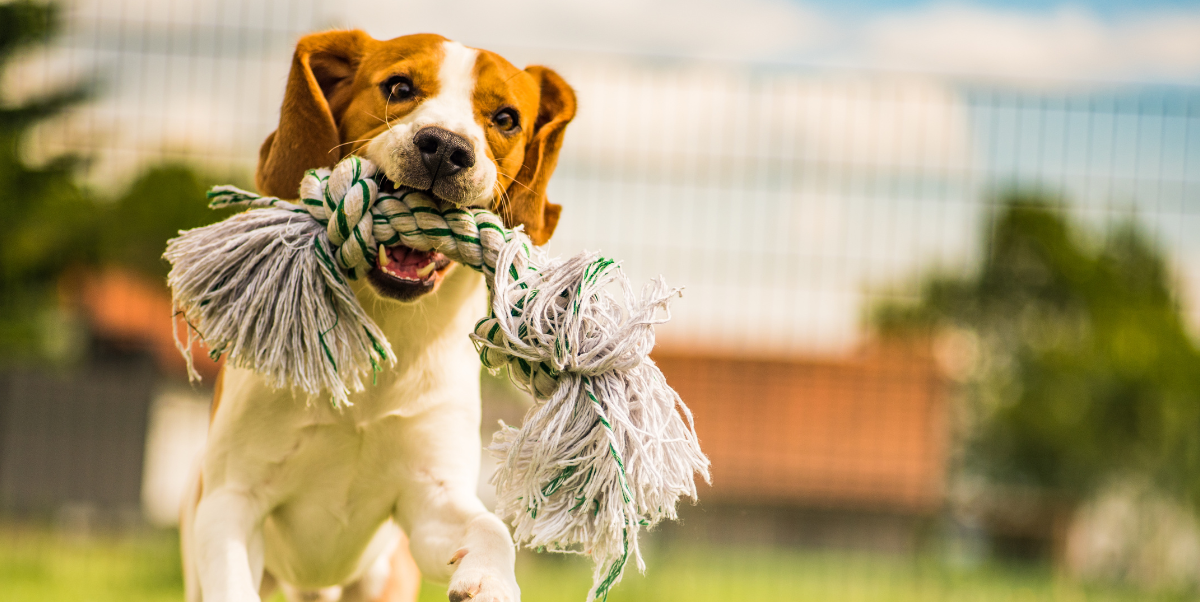Why is My Cat Coughing?
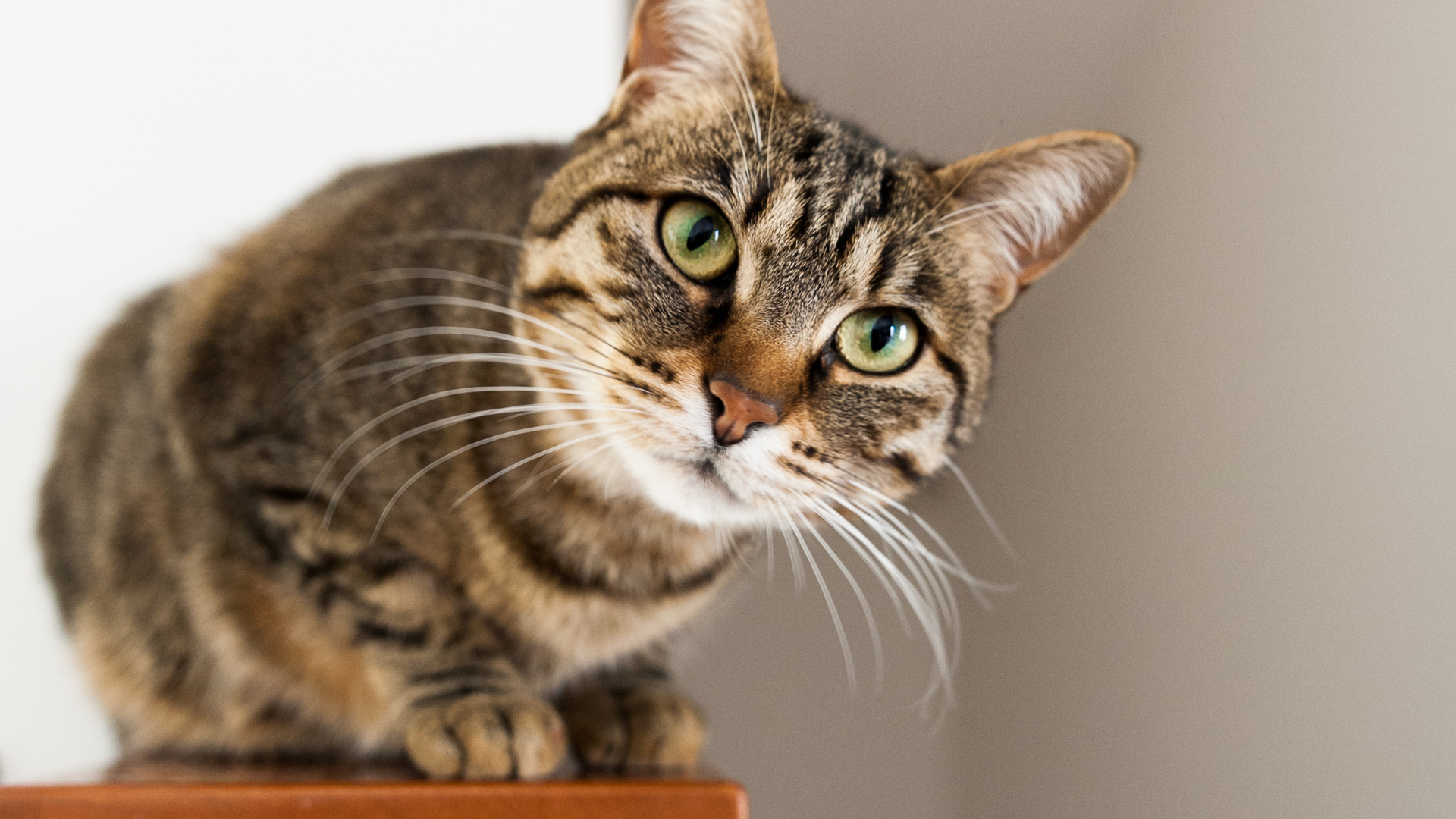
Understanding Feline Coughing
Differentiating Between Coughs and Other Sounds
Cats make a variety of sounds, and it's crucial for pet owners to distinguish between a cough and other noises such as sneezing, retching, or gagging. A cough is typically a forceful expulsion of air from the lungs, indicating irritation or blockage in the cat's airways. Understanding the nuances of these sounds can be critical in identifying potential health issues early on.
- Sneezing is often a sharp, sudden noise accompanied by a burst of air from the nose, usually without chest movement.
- Retching or gagging involves abdominal heaving and often precedes vomiting.
- A true cough involves a rhythmic contraction of the chest and may sound dry or wet, depending on the underlying cause.
It's important to note that if a cough persists or is accompanied by other symptoms such as difficulty breathing, lethargy, or loss of appetite, it may be time to seek professional medical services. In such cases, contacting an emergency vet or Orillia-based Pine Grove Veterinary Hospital can provide your cat with the necessary care and support.
Additionally, while assessing your cat's cough, consider factors such as the cough's frequency, duration, and any associated behaviors. These details can be invaluable during a veterinary examination. Pine Grove Veterinary Hospital not only offers emergency services but also provides nutritional counseling to support your cat's overall health and well-being.
Common Causes of Coughing in Cats
Coughing in cats can be attributed to a variety of underlying causes, each necessitating a different approach to diagnosis and treatment. One of the most common causes is upper respiratory infections, which are typically viral or bacterial in nature and can lead to persistent coughing. Other prevalent causes include:
- Asthma, a condition that affects a significant number of cats and can cause wheezing, coughing, and difficulty breathing.
- Parasitic infections, such as lungworms, which can lead to respiratory distress.
- Exposure to irritants like tobacco smoke, dust, or certain sprays that can trigger coughing.
It is essential to monitor your cat's coughing patterns and seek professional advice if the cough persists or is accompanied by other symptoms. Timely intervention can prevent complications and ensure the well-being of your feline friend.
When a cough develops or worsens, it's crucial to consider whether it's time to seek medical attention. If your cat's cough is severe, persistent, or accompanied by other worrying symptoms, it may be necessary to visit an emergency vet in Orillia. The Pine Grove Veterinary Hospital offers comprehensive Medical Services, including Nutritional Counseling, which can be vital in managing conditions that cause coughing. Remember, a cough is not just a nuisance; it can be a sign of a more serious health issue that requires prompt attention.
When to Be Concerned About Your Cat's Cough
Coughing in cats can occasionally be a sign of a serious underlying health issue. It is essential to monitor the frequency, duration, and intensity of your cat's cough. Immediate veterinary attention is warranted if the cough is persistent, severe, or accompanied by other symptoms such as difficulty breathing, lethargy, or loss of appetite.
- Persistent coughing lasting more than a day
- Cough accompanied by wheezing or labored breathing
- Coughing up blood or unusual discharge
- Changes in behavior or activity levels
If your cat's coughing is severe or accompanied by distressing symptoms, seek professional medical services without delay. In such cases, contacting an emergency vet in Orillia can be a lifesaver. The Pine Grove Veterinary Hospital offers comprehensive medical services, including diagnostic evaluations and nutritional counseling, to address the health needs of your feline friend.
Timely intervention can prevent complications and ensure the well-being of your cat. Remember, coughing that disrupts your cat's normal routine or is out of character for them should not be ignored. Trust your instincts and consult with a veterinarian if you are concerned.
Diagnostic Approaches to Coughing in Cats
Veterinary Examination and History Taking
A thorough veterinary examination is the cornerstone of diagnosing the cause of coughing in cats. At Pine Grove Veterinary Hospital, the process begins with a detailed history taking, which can provide critical clues to the underlying issue. The veterinarian will inquire about the duration, frequency, and characteristics of the cough, as well as any other symptoms that have been observed.
- The initial assessment may also include a physical examination, focusing on the respiratory system, but also encompassing the heart, mouth, and throat.
- Medical Services such as auscultation (listening to the lungs and heart with a stethoscope) are routinely performed.
- Nutritional Counseling may be recommended if dietary factors are suspected to contribute to the cough.
In cases where the cough is severe or accompanied by distressing symptoms, it may be necessary to seek an emergency vet in Orillia. Timely intervention can be crucial, especially if the cough is indicative of a more serious condition.
Following the examination, the veterinarian will discuss the possible need for further diagnostic tests to pinpoint the exact cause of the cough. This step is essential for developing an effective treatment plan tailored to the cat's specific needs.
Imaging and Laboratory Tests
After a thorough veterinary examination, imaging and laboratory tests are crucial steps in diagnosing the cause of your cat's cough. These diagnostic tools provide a deeper insight into the internal workings of your cat's body, revealing issues that are not apparent through physical examination alone.
- X-rays and ultrasounds can visualize the lungs and heart, identifying abnormalities such as fluid build-up or structural changes.
- Blood tests can uncover infections, inflammation, or organ dysfunction.
- Specialized tests like bronchoalveolar lavage may be recommended to collect samples directly from the lungs.
In cases where immediate attention is required, such as severe respiratory distress, it is advisable to seek an emergency vet in Orillia. The Pine Grove Veterinary Hospital offers a range of medical services, including emergency care, nutritional counseling, and comprehensive diagnostic capabilities.
Timely and accurate diagnosis is essential for effective treatment. It is important to follow your veterinarian's advice and consider all the medical services available, including those at Pine Grove Veterinary Hospital, to ensure the best care for your feline friend.
Interpreting Diagnostic Results
Once the diagnostic tests have been completed, the next critical step is interpreting the results to determine the underlying cause of your cat's cough. This process guides the subsequent treatment plan. Veterinarians will consider the complete picture, including the cat's medical history, clinical signs, and the findings from both imaging and laboratory tests.
- A thorough evaluation may reveal conditions such as infections, asthma, or even heart disease.
- In some cases, further specialized tests may be required to refine the diagnosis.
- It's important to understand that some conditions may require ongoing management rather than a one-time treatment.
Deciphering the diagnostic results can be complex, and it's essential to rely on the expertise of veterinary professionals. In situations where the cough is severe or the diagnosis is uncertain, seeking the services of an emergency vet in Orillia may be advisable. The Pine Grove Veterinary Hospital offers a range of Medical Services, including Nutritional Counseling, which can be integral to the overall health and well-being of your feline friend.
The interpretation of diagnostic results is not just about identifying the problem; it's about crafting a personalized care plan for your cat. Each feline patient is unique, and their treatment should be tailored to their specific needs. The goal is to not only alleviate the cough but also to address the root cause, ensuring a better quality of life for your beloved pet.
Common Respiratory Conditions in Cats
Upper Respiratory Infections
Upper Respiratory Infections (URIs) are among the most common causes of coughing in cats, often characterized by symptoms such as sneezing, nasal discharge, and conjunctivitis. These infections can be caused by a variety of pathogens, including viruses like feline herpesvirus and calicivirus, as well as bacteria.
Early detection and treatment are crucial to prevent the progression of URIs and to avoid secondary complications. The following steps are recommended for managing a cat with an upper respiratory infection:
- Isolate the infected cat from other pets to prevent the spread of the infection.
- Maintain a clean and comfortable environment to support recovery.
- Ensure the cat remains well-hydrated and encourage eating with palatable, aromatic foods.
If your cat's symptoms are severe or persist despite initial care, it is important to seek professional medical services. In cases where a cat is struggling to breathe or stops eating, immediate attention from an emergency vet in Orillia may be necessary.
Pine Grove Veterinary Hospital offers comprehensive care for feline respiratory conditions, including state-of-the-art diagnostic tools and a range of treatment options. Their team is experienced in providing medical interv
Asthma and Bronchitis
Feline asthma and bronchitis are common respiratory conditions that can cause coughing in cats. These ailments are often chronic and can significantly impact a cat's quality of life. Asthma in cats is similar to human asthma, where the airways become inflamed and constrict, leading to difficulty breathing and coughing. Bronchitis, on the other hand, involves inflammation of the bronchi, the major air passages to the lungs.
- Symptoms of these conditions can include wheezing, labored breathing, and a persistent cough.
- Diagnosis typically involves a thorough veterinary examination, which may include imaging such as X-rays.
- Treatment often consists of corticosteroids to reduce inflammation and bronchodilators to open airways.
Monitor your cat's respiratory health and seek professional advice if you notice any signs of distress. In cases where a cat's coughing is severe or accompanied by other worrying symptoms, it may be necessary to seek emergency vet services.
For residents in the Orillia area, Pine Grove Veterinary Hospital offers a range of Medical Services, including emergency care for acute conditions like severe asthma or bronchitis attacks. Their team is equipped to provide Nutritional Counseling, which can play a role in managing chronic respiratory conditions. Remember, timely intervention can be critical, so do not hesitate to contact your vet or an emergency vet in Orillia if your cat's coughing worsens or persists.
Parasitic Infections
Parasitic infections can be a significant cause of coughing in cats. These infections are often related to parasites such as lungworms or heartworms, which can cause respiratory distress and coughing as they migrate or reside in the cat's lungs and heart. Early detection and treatment are crucial to prevent serious health complications.
- Lungworms are typically contracted from the environment or through the ingestion of infected prey.
- Heartworms are transmitted by mosquito bites and can lead to severe heart and lung disease.
It is important to consult with a veterinarian if parasitic infection is suspected, as they can provide the necessary Medical Services, including diagnostic tests and appropriate treatments. Pine Grove Veterinary Hospital offers comprehensive care, including Nutritional Counseling, which can be vital in supporting a cat's recovery from parasitic infections.
Timely intervention can be lifesaving, especially in acute or severe cases of parasitic infections.
Non-Respiratory Causes of Coughing
Heart Disease and Coughing
Coughing in cats can sometimes be a sign of underlying heart disease. Unlike in humans, where coughing is a common symptom of heart conditions, in cats it is less typical and can often be overlooked. Heart disease can lead to fluid accumulation in the lungs, which may cause coughing or difficulty breathing.
- Early detection of heart disease is crucial for managing symptoms and improving quality of life.
- Regular check-ups with a veterinary professional, such as those at Pine Grove Veterinary Hospital, can help identify heart issues before they become severe.
- Medical Services including echocardiograms and X-rays are often utilized to diagnose the exact nature of the heart condition.
If your cat's cough is accompanied by rapid breathing, lethargy, or a bluish tint to the gums, it may be indicative of heart disease and should be considered an emergency. In such cases, seeking immediate care from an emergency vet in Orillia is imperative.
Nutritional Counseling can also play a vital role in managing heart disease in cats. A tailored diet may help reduce the workload on the heart and improve overall health. It's important to work with your veterinarian to determine the best dietary strategy for your feline friend.
Allergic Reactions
Just like humans, cats can suffer from allergic reactions that may lead to coughing. These reactions are typically triggered by environmental allergens such as pollen, mold, dust, or certain chemicals found in household cleaning products. In some cases, cats may also react to perfumes or smoke. Identifying the allergen is crucial for managing your cat's symptoms and improving their quality of life.
- Identify and remove the allergen from the cat's environment.
- Consult with a veterinarian for appropriate medical interventions.
- Consider implementing air purifiers or hypoallergenic bedding to reduce potential allergens.
Allergic reactions in cats can sometimes escalate to more severe conditions, requiring immediate attention. If you notice your cat experiencing difficulty breathing, swelling, or persistent coughing, it is important to seek professional help. In such cases, contacting an emergency vet in Orillia can be a critical step.
For comprehensive care, including Medical Services and Nutritional Counseling, Pine Grove Veterinary Hospital offers a range of services to address your cat's health needs. Their team is equipped to diagnose and treat various conditions, ensuring your feline friend receives the best possible care.
Foreign Bodies and Irritants
Cats are curious creatures, often exploring their environment with their noses and mouths. This natural behavior can sometimes lead to the inhalation or ingestion of foreign bodies, which can cause coughing as the body attempts to expel these unwanted invaders. Common foreign bodies include small toys, pieces of string, or even household dust and plant matter.
Immediate veterinary attention is crucial if you suspect your cat has inhaled or ingested a foreign object. The presence of foreign bodies can lead to a serious condition if not addressed promptly. Symptoms may include persistent coughing, gagging, or even choking.
- If coughing is accompanied by distress, seek emergency vet services.
- Pine Grove Veterinary Hospital offers comprehensive Medical Services, including emergency care.
- In cases of irritants, such as smoke or sprays, removing the cat from the source and providing fresh air is key.
Treatment and Management of Coughing in Cats
Medical Interventions
When a cat presents with persistent coughing, medical interventions may be necessary to manage the condition effectively. Treatment options vary depending on the underlying cause and may include the following:
- Antibiotics for bacterial infections
- Antiparasitic medications for parasitic infections
- Corticosteroids or bronchodilators for asthma or bronchitis
- Intravenous fluids and other supportive care in severe cases
Professional advice from a veterinary clinic like Pine Grove Veterinary Hospital, which offers comprehensive Medical Services, including an emergency vet in Orillia, will ensure your cat receives the appropriate care. In some cases, Nutritional Counseling may also be part of the treatment plan to support overall health and recovery.
Timely medical intervention can significantly improve the prognosis for cats with respiratory issues. However, it's essential to continue monitoring your cat's condition and follow up with your veterinarian to adjust treatment as needed.
Home Care and Environmental Management
In addition to Medical Services provided by professionals, home care is a crucial aspect of managing a cat's coughing condition. Ensuring a clean and allergen-free environment can significantly reduce irritants that may exacerbate coughing. Here are some steps to take:
- Regularly clean bedding and living spaces to minimize dust and dander.
- Use air purifiers to filter out potential airborne allergens.
- Avoid smoking or using strong fragrances around your cat.
It's important to consider your cat's diet as part of their overall health management. Nutritional Counseling can play a vital role in supporting their respiratory health.
If coughing persists or worsens, it may be necessary to seek immediate care. In such cases, contacting an emergency vet in Orillia can be a lifesaving decision. The Pine Grove Veterinary Hospital is equipped to handle such emergencies, providing comprehensive care and support for your feline friend.
Long-Term Management of Chronic Conditions
Managing chronic coughing conditions in cats requires a comprehensive approach that often involves a combination of Medical Services, ongoing monitoring, and lifestyle adjustments. Owners should work closely with their veterinarians, such as those at Pine Grove Veterinary Hospital, to develop a personalized care plan that may include:
- Regular check-ups to monitor the cat's respiratory health.
- Adjustments to medication dosages or types as needed.
- Nutritional Counseling to ensure the cat's diet supports overall health and immune function.
Maintain a stress-free environment for your cat, as stress can exacerbate coughing and other symptoms of chronic respiratory conditions.
In the event of sudden worsening of symptoms, it is important to have a plan in place for seeking immediate care. Knowing the location of an emergency vet in Orillia can be lifesaving in a crisis. Long-term management is not just about treating the cough; it's about enhancing the quality of life for your feline friend.

